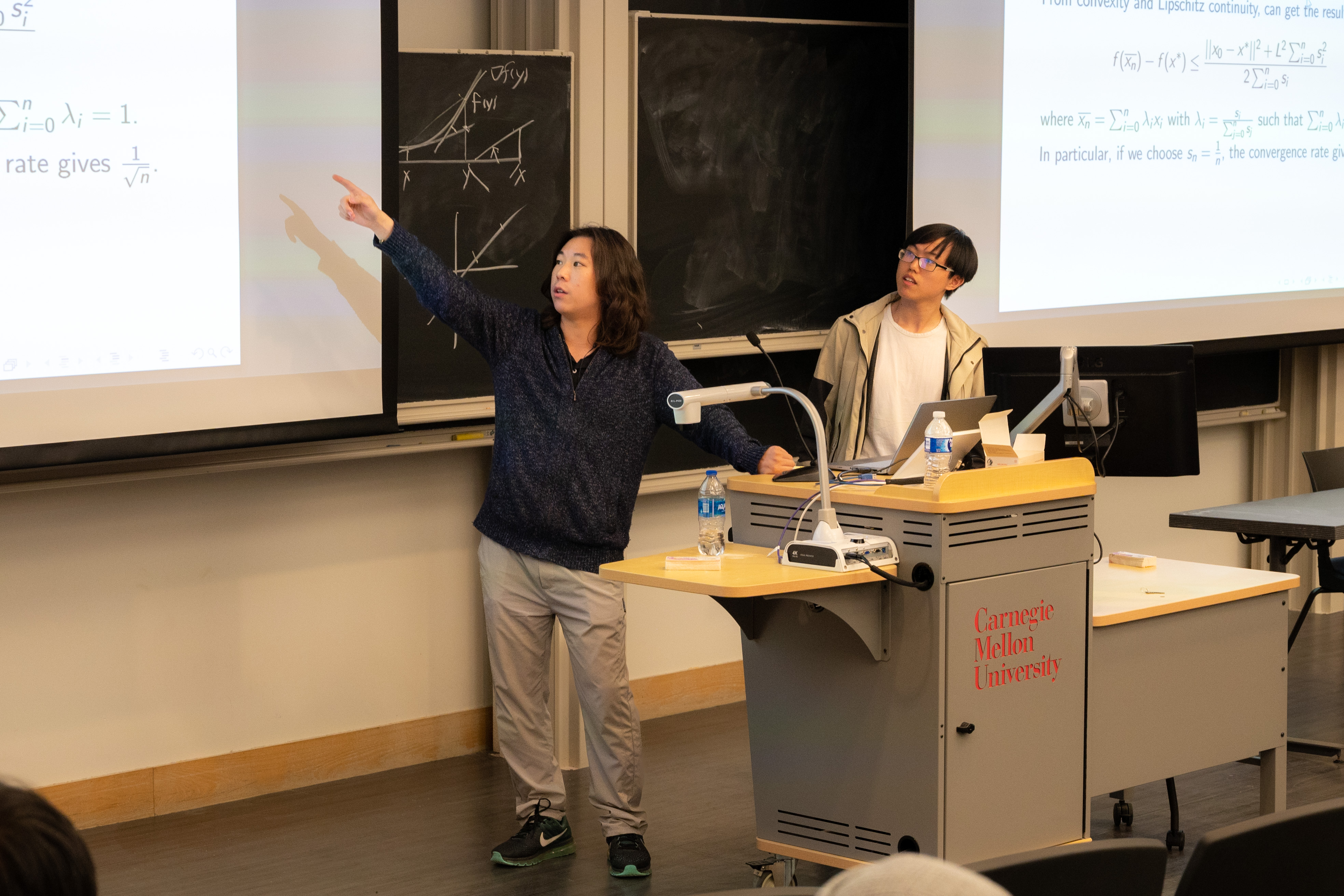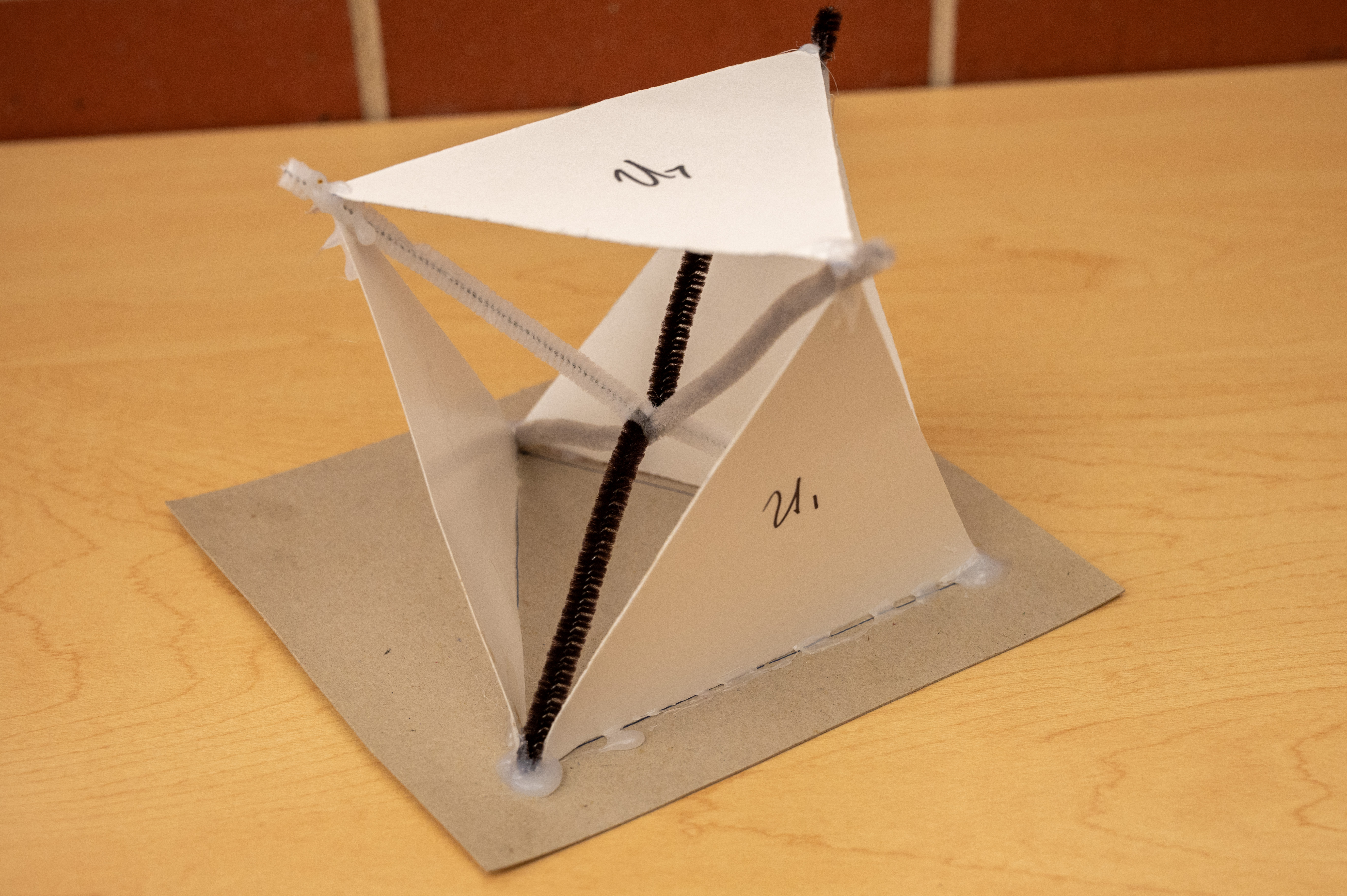SEMS Offers Research Experiences
By Kirsten Heuring
Media Inquiries- Associate Dean for Communications, MCS
- 412-268-9982
As David Staudinger filled out college applications, Carnegie Mellon University's Summer Experiences in Mathematical Sciences (SEMS) caught his eye.
"When I was researching schools, I saw that SEMS was offered, so I was aware it was an opportunity coming into my freshman year," said Staudinger, a sophomore in mathematical sciences.
Staudinger was one of 12 students who participated in 2023's SEMS. The program was proposed in 2020 by Professor of Mathematical Sciences Tom Bohman when many of the summer research and internship opportunities undergraduate students usually enjoyed were canceled because of the COVID-19 pandemic. Participants choose one of four topics to research while working in small groups under the guidance of professors and postdoctoral fellows.
In 2020, the program was held on Zoom and it included six teams. In 2021, the program expanded to eight teams and was held both in person and on Zoom. SEMS has remained popular with first-year students and sophomores who have taken advanced mathematical sciences courses even as more typical internship and research opportunities returned starting in 2022.
"SEMS is intended to be the first research experience for the students," said Irina Gheorghiciuc, associate teaching professor director of undergraduate research in the Department of Mathematical Sciences. "Students can participate in this program before they are ready for internships or REUs [Research Experiences for Undergraduates]. The program helps to prepare students for serious research in mathematics. Many of their advisors are young faculty for whom this is a great opportunity to learn how to mentor students."
One of these advisors is Amzi Jeffs, postdoctoral associate in mathematical sciences. Jeffs designed the project that Staudinger participated in: realizations and obstructions for convex codes.
"Research experiences I had when I was an undergraduate studying at Harvey Mudd College got me interested in mentoring," Jeffs said. "I started in research working on a very similar project to what we've done here."
Jeffs' team used discrete mathematics and combinatorics to study which Venn diagram-like patterns can be cut out with convex sets. Staudinger, sophomore Henry Siegel and senior Yiqing Wang, showed that a certain code can be drawn with closed sets in three-dimensional space, but using open sets requires at least four dimensions. They demonstrated how their code worked by creating a visual model with cardboard, glue and pipe cleaners.
"The topic is very accessible for undergrads, and they can really make a contribution," Jeffs said. "The code is simple, but it's demonstrating behavior that people have never found for codes like that before."
Staudinger said he had never conducted math research in this area, which was part of the appeal.
"It was a fun project to work on because there was a lot of visualization," Staudinger said. "I was exposed to the research process and be able to contribute to something."

Haozhan Ma and Daniel Zhou describe their project at the September 27 SEMS presentations.
Students could investigate applied mathematics. Noel Walkington, professor of mathematical sciences, created a project entitled numerical approximation of degenerate differential equations.
In his research, Walkington uses equations to model the effects of climate change on permafrost and trapped greenhouse gases. As the Earth warms and the permafrost melts, the gases are released.
"I thought it's a nice little nugget to pull out to see how students address these issues," Walkington said.
Haozhan Ma, a junior in mathematical sciences, and Daniel Zhou, a senior in mathematical sciences, worked on Walkington's project and developed a method to solve equations which may model how the gases will dissolve into liquids as the permafrost melts. Ma and Zhou said this was their first time working on applied mathematics.
"The algorithm helps us to do something applied in real life," Ma said. "I've never really thought about how math can help like this until I got into this project."
Zhou said that he was glad to participate in SEMS.
"I got to test a lot of theorems and see if they actually work and can be applied," Zhou said. "I appreciated the experience to do research, explore it and see if I would like to continue to do it in the future."
Walkington said that the switch from theoretical to applied mathematics may be a challenge for some students, and he was glad to have provided this experience.
"It gets very technical very fast, and you have to be patient," Walkington said. "But if they like it, I love it, too."
